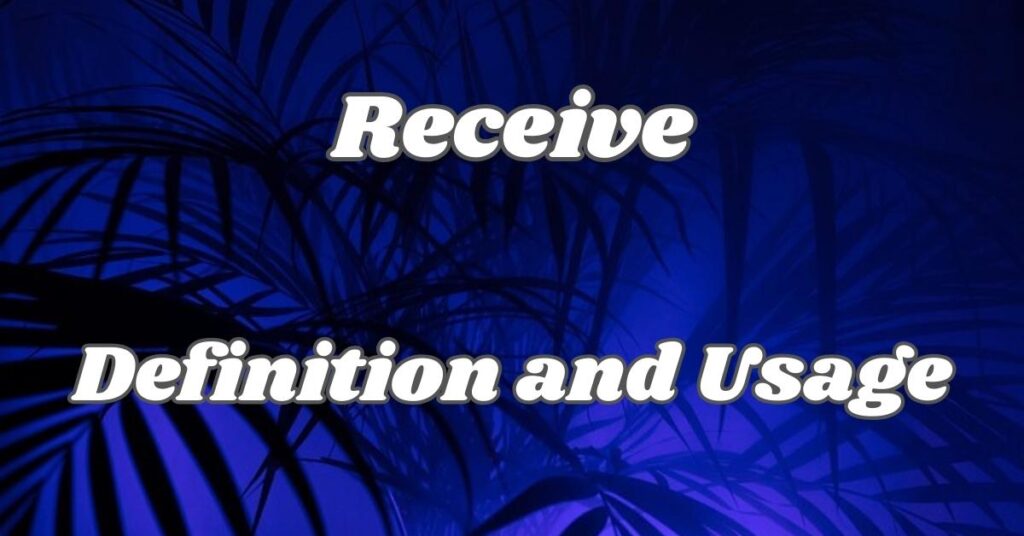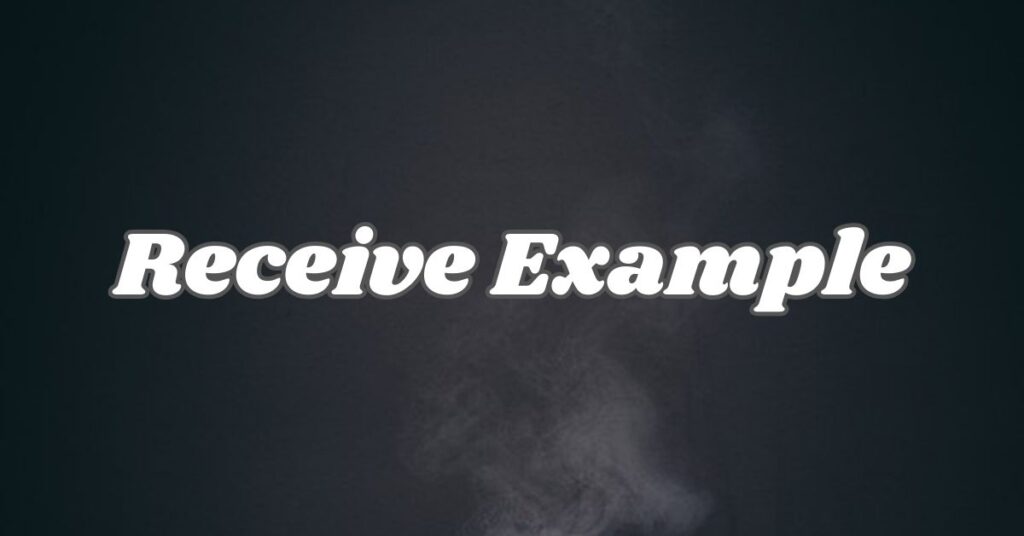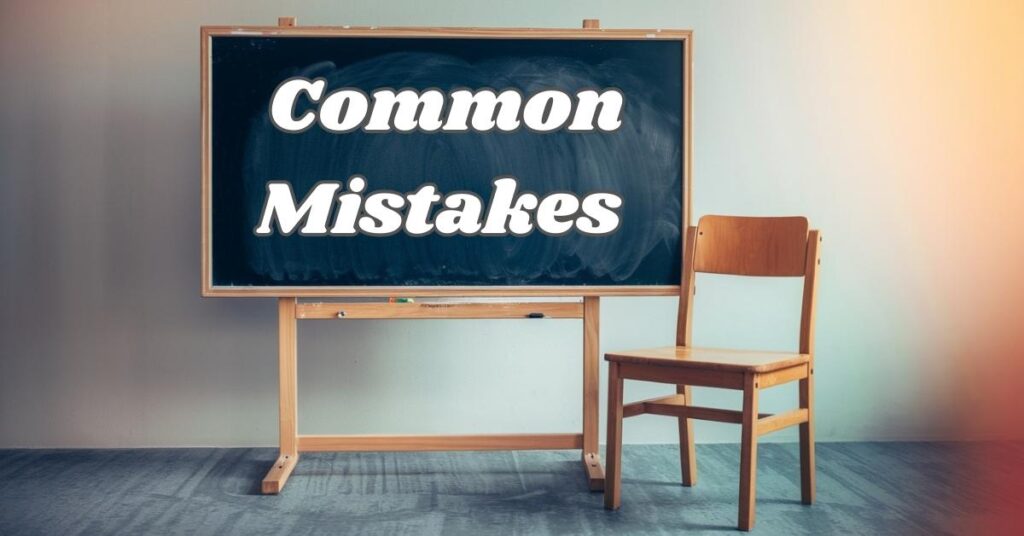Recieve or Receive is a common dilemma for many English speakers and writers. The confusion between these two spellings often leads to frequent spelling mistakes, which can undermine the clarity of your written communication.
Understanding the correct spelling of “receive” is essential not only for effective language mastery but also for presenting yourself as a competent communicator.
This article will explore the reasons behind the common error of “recieve,” delve into phonetic patterns, and provide practical tips to ensure you always use the right spelling. By mastering this word, you’ll enhance your writing skills and avoid falling into the trap of this tricky spelling mistake.
Quick Summary
The “Receive” and “Recieve” often confuse many people, leading to frequent spelling errors. Understanding the correct spelling is essential because it affects how clearly we communicate. Using the right form not only enhances our writing but also helps convey professionalism and attention to detail. Mastering this distinction is a key step in improving your overall language skills.
Understanding Recieve or Receive

The “receive” means to get or accept something. It is a verb used frequently in everyday language, such as when someone says, “I will receive your email.” On the other hand, “recieve” is not a valid word in the English language.
Understanding this distinction is essential for language mastery. The confusion often arises from the way we pronounce the word. Many people hear the sound and instinctively spell it with an “i” before the “e,” leading to the incorrect spelling of “recieve.”
Why Is This Error So Common?
The error of writing “recieve” instead of “receive” occurs frequently because of our reliance on phonetic patterns. When we hear words, we often spell them based on how they sound.
This is a natural part of language learning, but it can lead to common spelling mistakes. Furthermore, English has many exceptions to its spelling rules, which adds to the confusion.
For example, while the rule states “I before E except after C,” there are exceptions like “weird.” This inconsistency makes it challenging for learners and even native speakers to remember the correct spelling.
The Role of Phonetics in Misspelling
Phonetics plays a significant role in how we spell words. When we hear a word like “receive,” we might focus on its sounds rather than its letters. This can lead to errors, especially in tricky words like “receive.”
Understanding phonetic spelling helps clarify why some people struggle with certain words. For instance, if someone hears “receive” pronounced quickly, they might confuse it with other similar-sounding words and misspell it as “recieve.”
Origins of the Receive
The word “receive” originates from the Latin term recipere, meaning “to take back” or “to accept.” This evolved through Old North French receivre and Middle English receiven, first appearing around 1300.
It signifies accepting items or information, reflecting its usage in various contexts today. The spelling “recieve” is incorrect and lacks any definition in English dictionaries, highlighting the importance of using “receive” for clear communication. Understanding its roots can enhance your grasp of the word’s significance in language.
Recieve: Definition and Usage

“Recieve” does not exist in standard English, understanding how it might be used can help clarify why it’s important to avoid this mistake. People may use “recieve” when they mean to say they got something or accepted something.
However, this usage is incorrect and should be avoided in all forms of communication.
Recieve Meanings
“Recieve” is not a legitimate word in English, it lacks any definitions or meanings in dictionaries. Therefore, it is essential to always use the correct spelling “receive” to ensure effective communication and avoid confusion in your writing.
Recieve Usage
Many people mistakenly write sentences like “I will recieve my package tomorrow.” Such errors emphasize the importance of paying close attention to detail when writing. Using the correct spelling is crucial for clear communication and maintaining professionalism in your work.
Examples of “Recieve” Usage
- She will recieve her diploma next week.
- Did you recieve my email?
- They hope to recieve feedback soon.
- I always wanted to recieve a letter from you.
- He didn’t know how to recieve guests properly.
Recieve Usage in Sentences
- If you don’t know how to spell it, just remember: it’s not “recieve.”
- Many people mistakenly think “recieve” is correct.
- You should never use “recieve” in formal writing.
- It’s easy to confuse “recieve” with other similar words.
- The teacher corrected my use of “recieve” during class.
Pronunciation Guide and Syllable Breakdown
The word “receive” breaks down into three syllables: receive (pronounced /rɪˈsiːv/). Understanding this breakdown can help learners remember how to spell it correctly by associating each syllable with its letters.
Receive: Definition and Usage

“Receive” is a verb that means to accept or get something that is given or sent to you. It is commonly used in both spoken and written English, appearing in various contexts such as receiving gifts, messages, or information.
Understanding its proper usage is important for clear communication. Whether in casual conversation or formal writing, using “receive” correctly helps convey your message effectively and demonstrates strong language skills.
Receive Meanings
“Receive” has multiple meanings based on context. It can refer to accepting tangible items, such as packages or gifts, as well as intangible things like compliments or information. Understanding these nuances enhances clarity in communication and improves language skills.
Receive Usage
“Receive” is commonly used in everyday conversation. For example, you might say, “I will receive my paycheck every Friday.” Such phrases illustrate how this verb fits seamlessly into various contexts, highlighting its importance in daily communication.
Examples of “Receive” Usage
- I will receive my friends at noon.
- She hopes to receive good news soon.
- We must receive our guests warmly.
- He will receive his degree next month.
- They expect to receive feedback shortly.
Contexts Where “Receive” Is Commonly Used
“Receive” is used in various contexts, including business communications, personal interactions, and formal writing. Its presence in these situations underscores the importance of clarity in communication, ensuring that messages are conveyed accurately and understood by the audience.
Synonyms of Receive
- Accept
- Get
- Acquire
- Welcome
- Collect
- Obtain
- Secure
- Embrace
- Take in
- Gather
Side by Side Comparison
| Aspect | Receive | Recieve |
| Correct Spelling | Yes | No |
| Definition | To accept | Non-existent |
| Common Usage | Frequent | Rare |
Everyday Usage Examples

Using the correct form of words is crucial for effective communication. Misusing terms like “receive” can lead to misunderstandings and confusion.
By ensuring that you use the proper spelling, you enhance clarity and convey your message more accurately, making it easier for others to understand your intent in both casual and formal contexts.
Recieve Example
Example of incorrect usage is the sentence, “She will always recieve my support.” In this case, the misspelling of “recieve” highlights the importance of using the correct form, which should be “receive,” to ensure clear communication.
Example of Recieve in Sentences
- Did you recieve my message?
- He hopes to recieve advice from experts.
- I didn’t recieve any notifications today.
- They will recieve their orders soon.
- She didn’t recieve her package yet.
Receive Example

An example of correct usage is, “I will always receive your feedback positively.” This sentence demonstrates the proper spelling of “receive,” emphasizing its role in fostering open communication and encouraging constructive dialogue in both personal and professional interactions.
Example of Receive in Sentences
- I always receive compliments on my work.
- She hopes to receive good news soon.
- We must receive our guests warmly.
- He will receive his degree next month.
- They expect to receive feedback shortly.
‘Recieve’: Why This Spelling is Incorrect
The spelling “Recieve” is incorrect as it does not adhere to standard English spelling conventions. This mistake arises from misunderstanding phonetic patterns and the established rules, making it essential to use the correct form, “receive,” for effective communication.
Breaking Down the Error
To Understand why people often misspell “receive,” it’s important to examine their thought processes when they hear and write the word. Many rely on phonetic sounds, leading to confusion and the incorrect spelling “recieve” instead of the correct form.
Common Reasons People Misspell It This Way
Many individuals confuse phonetics with spelling rules due to sound-based learning methods that overlook exceptions.
Understanding the Spelling Rule and Its Exceptions

The rule “I before E except after C” is a common guideline in English spelling. However, it has several exceptions that can confuse learners, making it important to recognize when this rule does not apply.
The “I Before E Except After C” Rule Explained
This rule indicates that when “i” appears before “e,” it should be spelled that way unless it follows a “c.” In the case of “receive,” the rule holds true because there is a “c” before the “e.”
Other Exceptions to the Rule
English contains many exceptions to the “I before E” rule, such as words like “weird” and “either.” These irregularities can complicate the learning process and highlight the need for careful attention to spelling patterns.
Tips for Remembering the Correct Spelling of “Receive”
To help remember how to spell “receive,” consider using mnemonic devices. Associating it with phrases like “I receive gifts” can reinforce the correct spelling and make it easier to recall in writing.”
Read More Article: Using or Useing: Which Spelling Is Correct?
Common Mistakes and How to Avoid Them

Recognizing common mistakes is essential for improving your writing. By being aware of frequent errors, you can actively work to avoid them, ensuring that they do not become ingrained habits that affect your overall communication skills.
Other Frequently Misspelled Words
Many writers struggle with words like “definitely,” “separate,” and “accommodate.” These tricky terms can lead to frequent misspellings. Practicing these words regularly can enhance your overall spelling abilities and boost your confidence in written communication.
Proofreading Strategies for Catching Spelling Mistakes
Effective proofreading is vital for catching spelling mistakes. Reading your work aloud allows you to hear errors that might be overlooked when reading silently. This practice helps ensure clarity and accuracy before submitting any written material.
Recommended Tools or Apps for Spell-Checking[
Utilizing spell check tools, such as Grammarly or the built-in checker in Microsoft Word, can greatly reduce spelling errors in your writing. These tools provide real-time feedback and suggestions, helping you improve your writing accuracy and efficiency.
Pro Tips for Language Clarity
- Use straightforward sentence structures to make your writing more accessible and easier to understand.
- Avoid overly complex vocabulary unless it is essential for the context; simpler words often convey your message more effectively.
- Break long sentences into shorter ones to enhance readability and maintain the reader’s attention.
- Be concise; eliminate unnecessary words that do not add value to your message.
- Organize your ideas logically, using clear transitions to guide the reader through your text.
- Proofread your work to identify areas where clarity can be improved, ensuring your message is communicated effectively.
Related Article: Motif vs Theme: What’s the Difference?
FAQs: Recieve or Receive
Why is receive so hard to spell?
“Receive” is often misspelled as “recieve” due to reliance on phonetic sounds and the common spelling rule “I before E except after C,” which can confuse learners.
What is the meaning of the word recieve?
“Recieve” is not a valid word in English; the correct term is “receive,” which means to accept or get something that is given or sent.
Why is receive spelled that way?
“Receive” follows the Latin root recipere, and its spelling reflects the historical evolution through Old French, adhering to specific English spelling conventions.
Why is two spelled this way?
The word “two” comes from Old English twa and has retained its distinct spelling to differentiate it from “to” and “too,” which have different meanings.
Conclusion
Mastering the difference between Recieve or Receive is crucial for effective communication in English. By understanding the phonetic patterns and spelling rules, you can avoid the common pitfalls associated with this frequent spelling mistake.
Remember that “receive” is the correct form, while “recieve” is not a valid word. With practice and attention to detail, you can enhance your writing skills and ensure clarity in your written communication. Embrace these tips, and you’ll confidently navigate the complexities of English spelling.

